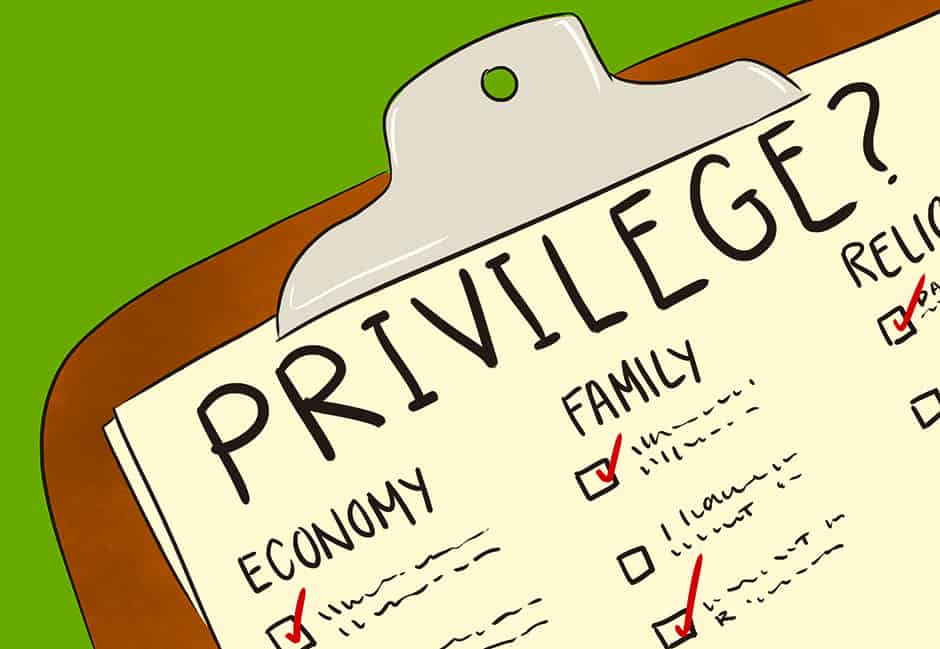If you are going to speak up, consider where your ideas come from
Some have advantages that other people do not have, and have probably had them since very early on in their lives. These are benefits that certain portions of the population have, while others do not, based on factors such as gender, race, economic situation, place and country of residence, ability, or even less objective things such as your appearance or weight.
If you are a white man who has identified as a man for your whole life, you can’t know precisely what it’s like to be a man, woman, or transgender person of colour. Since birth, your life has been shaped in such a way that you don’t have to think about your gender or your race very often. That is the most harmful thing about having privilege — if you have it, you rarely have to think about that aspect of your life.
I get it — no one likes being silenced. That’s why a lot of people just stay silent from the beginning when it comes to debates about social justice. However, if you are going to speak up, make sure that what you’re saying isn’t getting in the way of some groups and their advocacy to reach a level of safety that you have had since you were born.
Being told to check your privilege is not the same as being told to shut up, nor does it mean that your opinion is inherently any less necessary. Rather, it’s a plea from more marginalized people for you to step back, evaluate the advantages you have in life that are swaying your argument, and then reconsider what you’re saying.
Being told to check your privilege is not forcing you to be politically correct; it’s asking you to come to terms with the fact that you live an easier life than a lot of other people without even knowing it. Check your privilege and be aware of it whenever you can. It’s not difficult to appreciate what you have, and make sure you don’t let it skew the way you view the world.
If someone asks you to check your privilege, do it. Try to see something from a point of view that you have never had. It’s almost guaranteed that the things we say are affected by where we’re from and who we are, and as such, others will have life experiences that may differ from yours — so, it’s worth listening when someone with a different perspective or background cries injustice.
Shailee Koranne is a first-year student at Victoria College studying English and history.
In argument and discourse, content should matter more than the source
What does “check your privilege” mean? When people are engaging in discourse, sharing their opinions in a respectful, academic discussion, one person may remind another that they are speaking from a point of privilege, and therefore that they ought to be aware of what influences their thinking.
For example, Jacob and Aanya are having a discussion about street harassment. Jacob, who is a white heterosexual male, argues that what most would consider harassment is harmless and can even be defended as a form of flattery. Aanya, who is neither male, white, nor heterosexual, disagrees, and responds by telling Jacob to check his privilege.
One could question the relevance of Aanya’s response. What does Jacob’s position of privilege have to do with the strength of his argument, or the relative truth of the conclusions he draws?
People’s life experiences certainly influence the views they hold and the arguments they support. Furthermore, people with certain life experiences may be more likely to hold certain views. For example, men are probably more likely than women to discard certain comments made by strangers as harmless or friendly.
Whether something like “How are you this morning?” or “God bless you Mami” — as can be overheard directed towards the subject of a recent viral video displaying misogynistic street harassment — should be considered harassment should be unrelated to Jacob’s male privilege. It either is harassment or it isn’t.
Jacob’s arguments do not necessarily become any stronger or weaker if a woman made them. Attacking an argument by criticizing the source is nothing short of ad hominem.
However, such a reaction may miss what is indirectly meant by Aanya’s response. What Aanya means to say is that Jacob’s view on the subject is biased as a result of his privileged position. In other words, Jacob could not possibly experience women’s issues or share their perspective, nor has he been subjected to street harassment; his privilege affects his thinking undoubtedly.
Since the purpose of discourse is to determine whether this sort of statement is true, or whether the possible arguments supporting it are strong, comments and criticisms aimed at the source of the argument are beside the point. If Jacob makes a compelling argument, should it be disqualified just because it came from a place of privilege?
In general, we have to remember to remove ourselves from the context of discourse; the focus should always be on what is being said, and not who is saying it.
Pouya Makki is a third-year philosophy specialist at Trinity College.


